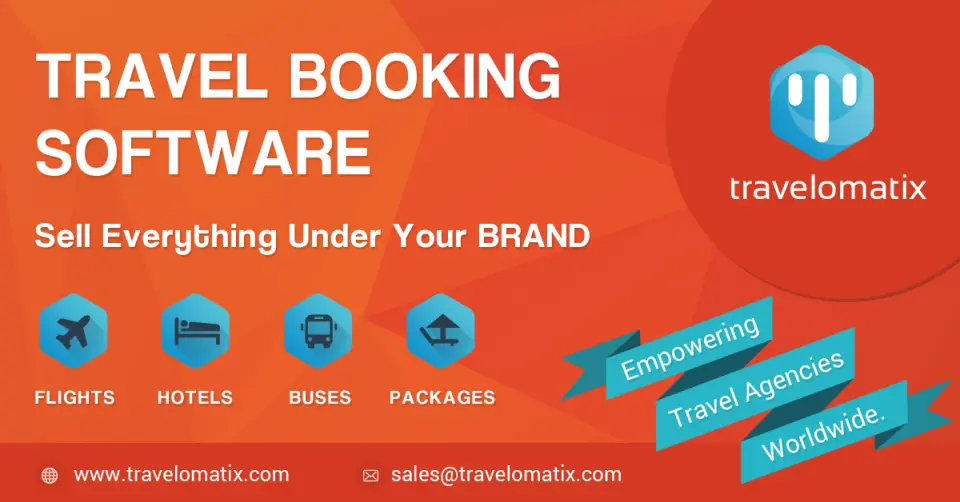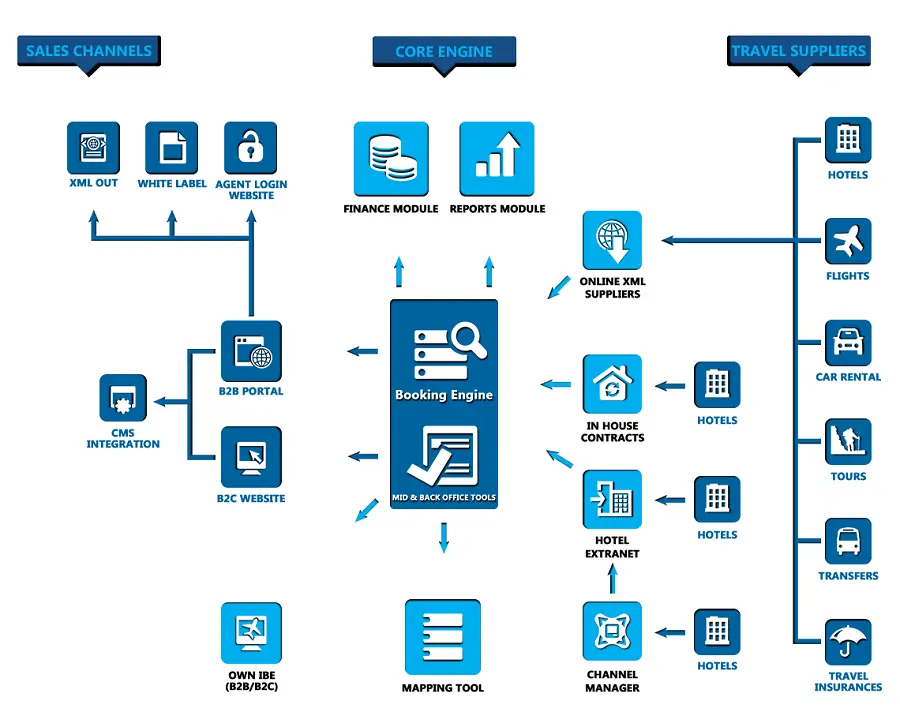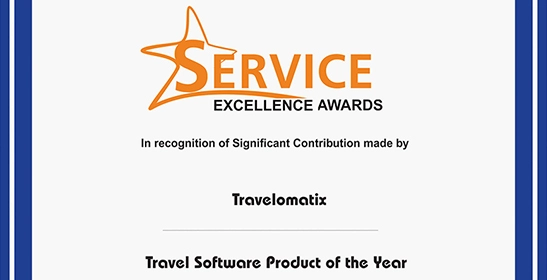White Label Travel Portal - How to Develop, System Cost, Top Providers and Hosting Solutions (Complete Guide - 2025)
21 June, 2025
Suman
In the modern travel landscape, technology is indispensable for travel agents. Automated booking systems, internet platforms, and mobile applications streamline operations, providing quick access to real-time information. Technology enhances customer service, allowing personalized experiences based on preferences. It also aids marketing efforts, reaching a broader audience and promoting special deals.
Compliance with industry regulations and secure handling of sensitive data are ensured. Overall, travel technology products like booking engine,
white label travel portal
, travel CRMs are essential for travel agents to stay competitive, adapt to evolving demands, and deliver efficient, secure, and satisfying travel experiences to clients.
Want to Develop A White Label Travel Portal - Get A Quote
As per the current market research, the global tourism market size is expected to record a CAGR of 3.7% from 2023 to 2032. In 2023, the market size is projected to reach a valuation of US$ 8,880 Billion. By 2032, the valuation is anticipated to
reach US$ 12,314 Billion. ‘All-in-one-place’ online travel portal platforms have improved the user experiences to another level. According to
Statista, OTA revenue is expected to show an annual growth rate of 10.8% over the next five years. Thus a higher adoption of
white label travel portal in USA
, India and rest of the world.
How to Develop White Label Travel Portal : A 9 Steps Action Plan
Developing a
white label travel website
involves several steps to ensure functionality, customization, and scalability. Here's a simplified breakdown in nine steps:
Step 1 : Market Research and Planning
Identify your target audience and their needs. Analyze competitors and industry trends. Define your unique selling propositions (USPs) and business goals.
Step 2 : Choose the Right Technology Stack
Select appropriate programming languages (Java, PHP, Dot Net), frameworks, and databases based on your project requirements. Consider factors like scalability, security, and ease of integration with third-party APIs.
Step 3 - Design and User Experience (UX/UI)
Create wireframes and mockups to visualize the portal's layout and functionality. Focus on intuitive navigation, clear call-to-action buttons, and responsive design of
white label travel booking engine
.
Step 4 - Back-End Development
Develop the server-side logic, database management, and application integration. Implement features like user authentication, booking management, payment processing, and content management system (CMS).
Step 5 - Front-End Development
Build the client-side interface using HTML, CSS, and JavaScript frameworks. Ensure seamless interaction between users and the portal, with smooth transitions and fast loading times.
Step 6 - Integration of APIs
Integrate APIs for accessing travel content such as flights, hotels, car rentals, activities, and travel insurance. Choose reliable providers with comprehensive APIs and solid support. This is key for your B2C B2B
white label travel portal development
.
Step 7 - Customization and Branding
Implement white-labeling features to allow customization of the portal's branding, including logo, color scheme, and domain name. Provide options for partners to add their branding elements easily.
Step 8 - Testing and Quality Assurance (QA)
Conduct thorough testing to identify and fix bugs, usability issues, and performance bottlenecks. Perform compatibility testing across various browsers, devices, and screen sizes.
Step 9 - Deployment and Maintenance
Deploy the B2B
B2C white label travel portal
in a reliable hosting environment with proper security measures in place. Provide ongoing maintenance and support to address user feedback, update content, and ensure smooth operation. Regularly update the portal with new features, security patches, and performance optimizations.
Throughout the development process, prioritize user experience, security, and scalability to create a robust white label travel portal that meets the needs of both partners and end-users.
Key Features of White Label Travel Portal Platform
Flight Ticket Booking
The white label travel platform is connected to the flight Global Distribution System (GDS) via web services, enabling the retrieval of online flight inventory. This information is then presented on the application's front-end in a specified UI/UX format. Upon choosing a particular flight from the search results, users are directed to the payment gateway for booking confirmation and the generation of a Passenger Name Record (PNR).
Hotel Booking
The white label travel system conducts searches for hotel deals using both Global Distribution Systems (GDS) and APIs through web services. It identifies the lowest tariffs per room per night. Once a specific hotel is chosen, users are directed to the payment gateway for booking, culminating in the generation of a voucher.
Car Booking
The white label portal system performs searches within its Central Reservation System (CRS) inventory and external APIs to determine the optimal options in a given city based on user input. Upon selecting a preferred result, the system facilitates redirection to the payment gateway for seamless transaction processing.
Holiday Packages
CMS driven domestic and international holiday packages will be designed as per the client requirement and will be connected through payment gateway or online form enquiry in proposed travel portal development solution.
Bus Booking
Travel tech software will search the CRS (own inventory) and API of Bus and will find out the best possible option available in a particular city as per the search by the user. On selecting one result it will be redirected to the payment gateway.
Forex (Foreign Money Exchange)
As a leading travel technology company, we set the module in admin to put the updated rates of currencies on what price they purchase and sale that particular currency. It can be processed through payment gateway if somebody wants to make the payment through credit card.
Payment Gateway Integration
Online payment gateway will be integrated to make the online payments by the customer. Online payment can be through credit cards or multiple payment gateway system to make it a globally accepted travel GDS portal.
SMS Gateway Incorporation
SMS API will be incorporated to send the sms to the client at the time of confirmation of booking or PNR creation.
B2B Agency Module
The comprehensive
white label travel portal software
incorporates a multilayered admin console. Agents are provided with a login facility to add funds to their accounts, subject to a predetermined cutoff limit. Upon logging into the portal, agents can utilize their deposit accounts to book air tickets and hotel deals, up to the specified cutoff limit. Once this limit is reached, agents are restricted from further bookings through their deposit accounts but are given the alternative to use a credit card for subsequent reservations. This system ensures efficient account management and a seamless booking process for agents.

How can a right white label travel portal can help you with your travel marketing needs
Travel agencies need to keep up with the latest trends in marketing to stay ahead of the competition. In addition to other marketing techniques, our SAAS based white label travel portal helps you with digital marketing initiatives. Our white label travel website comprises social media sharing, fast and responsive landing pages with on page optimizations to increase your google rankings.
Online Travel Agency Market Overview (2023 - 2030)
The online travel market is projected to reach a value of
$2.3 trillion by 2023, with an estimated compound annual growth rate (CAGR) of 10.3% during the forecast period. Factors such as the widespread use of mobile devices, improved network connectivity, and increasing disposable income are key drivers of this growth. Additionally, the rising interest in frequent travel, along with the emergence of vlogging culture, is expected to further boost market expansion.
There's a noticeable trend among younger generations, particularly Millennials and Gen Z, towards favoring digital solutions for travel bookings. These demographics are drawn to advanced booking systems that offer personalized experiences. In response, travel companies are investing in cutting-edge technologies like artificial intelligence, machine learning, white label travel portal development and Big Data to streamline the online booking process. By harnessing traveler analytics from Big Data, companies can tailor packages to individual preferences, attracting more traffic to their websites and apps and fueling market growth.













